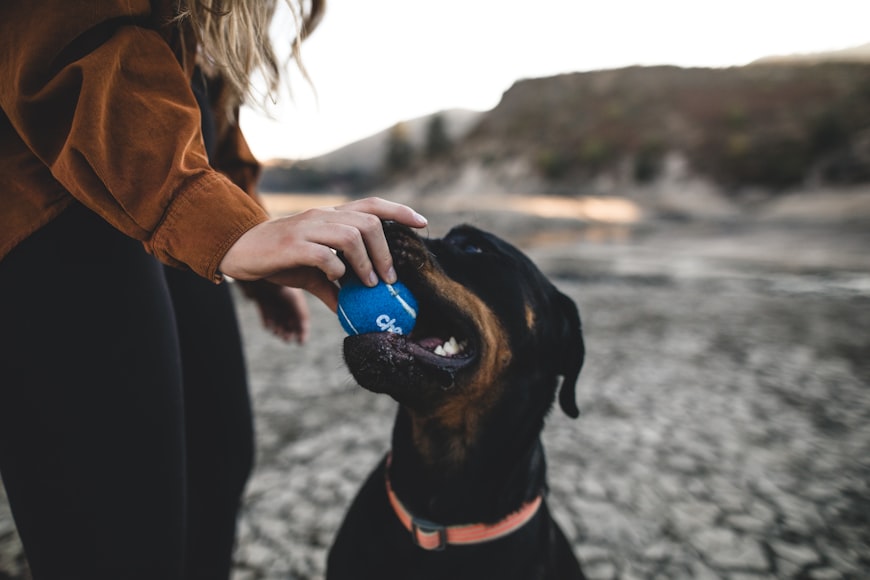I. Introduction

Introduction
Maintaining optimal health and well-being for our canine companions is paramount. In addition to a balanced diet, nutritional supplements can play a crucial role in supporting their overall wellness. This article will delve into the benefits of nutritional supplements for dogs and emphasize the importance of consulting a veterinarian before incorporating them into their regimen.
Benefits of Nutritional Supplements
Nutritional supplements can provide dogs with a range of benefits, including:
- Improved joint health: Supplements containing glucosamine and chondroitin can support joint cartilage and reduce inflammation, benefiting older dogs or those with joint issues.
- Enhanced immune function: Supplements such as probiotics and antioxidants can strengthen the immune system and protect pets from infections and diseases.
- Reduced skin and coat problems: Omega-3 fatty acids, biotin, and other skin-specific supplements can improve skin and coat health, reducing itching and dryness.
- Dental hygiene: Supplements like dental chews can help clean teeth, reduce plaque, and prevent oral problems.
- Cognitive support: Supplements containing ingredients like DHA and antioxidants can support brain function and cognitive health, especially in senior dogs.
- Energy and vitality: Supplements such as coenzyme Q10 and B vitamins can enhance energy levels and vitality.
Importance of Consulting a Veterinarian
While nutritional supplements can offer valuable benefits, it is crucial to consult with a licensed veterinarian before giving them to your dog. The veterinarian can assess your pet’s individual needs, determine any underlying health conditions, and recommend the appropriate supplements and dosages.
- Determining the right supplements: Not all supplements are created equal, and the veterinarian can help choose the ones most suitable for your dog’s age, breed, and health status.
- Avoiding adverse reactions: Some supplements may interact with medications or have side effects. The veterinarian can assess potential risks and ensure that the supplements are safe for your pet.
- Monitoring progress: The veterinarian can monitor your dog’s response to the supplements and adjust the regimen as needed, ensuring their continued well-being.
Conclusion
Nutritional supplements can be a valuable addition to a balanced diet for dogs, providing a range of health benefits. However, it is essential to approach their use with caution and consult a veterinarian for guidance. By working with a knowledgeable professional, you can ensure that your canine companion receives the optimal nutritional support for their specific needs. Remember, maintaining your dog’s health and happiness is a collaborative effort between pet owners and veterinary professionals.
II. Essential Nutrients for Dogs

As a pet blogger, you understand the importance of proper nutrition for your furry companion. Dogs, like humans, require a balanced diet to support their overall health and well-being. Here’s a comprehensive guide to the essential nutrients that dogs need for optimal health:
I. Protein
- Protein is a crucial nutrient for dogs. It provides the building blocks for muscles, organs, and skin.
- High-quality protein sources include meat, poultry, fish, and eggs.
- A diet with insufficient protein can lead to muscle loss, poor growth, and a weakened immune system.
II. Fats
- Fats are an essential energy source for dogs. They also provide insulation and support the absorption of fat-soluble vitamins.
- Healthy fat sources include chicken fat, fish oil, and vegetable oils.
- A diet low in fat can lead to dry skin, dull coat, and weight loss.
III. Carbohydrates
- While not as critical as protein and fats, carbohydrates provide energy for dogs.
- Complex carbohydrates found in whole grains, vegetables, and fruits are preferred over simple carbohydrates.
- Excessive carbohydrates can contribute to obesity if not balanced with other nutrients.
IV. Vitamins
- Vitamins are organic compounds that are essential for various bodily functions.
- Key vitamins for dogs include vitamins A, D, E, and B-complex.
- Deficiencies in vitamins can lead to a range of health problems, such as skin disorders, eye issues, and reproductive complications.
V. Minerals
- Minerals are inorganic elements that are crucial for maintaining electrolyte balance, bone health, and enzyme function.
- Important minerals for dogs include calcium, phosphorus, potassium, and sodium.
- Mineral deficiencies can lead to skeletal disorders, heart problems, and other health concerns.
Meeting Nutritional Needs with Supplements
In some cases, it may be necessary to supplement a dog’s diet with additional nutrients. Consult with a veterinarian to determine if supplements are appropriate for your pet’s specific needs.
- Protein supplements: Can be beneficial for dogs who are highly active, pregnant or nursing, or who have protein-losing conditions.
- Fats supplements: Can provide additional energy and support skin and coat health.
- Carbohydrate supplements: Can be useful for dogs who need extra energy or have difficulty maintaining a healthy weight.
- Vitamin and mineral supplements: Can help address deficiencies and support overall health and well-being.
Conclusion
Providing your dog with a balanced diet that includes all essential nutrients is crucial for their optimal health. By understanding the importance of protein, fats, carbohydrates, vitamins, and minerals, you can make informed decisions about your pet’s nutrition. Consult with your veterinarian for personalized advice and recommendations, particularly before introducing any supplements to your dog’s diet.
III. Types of Nutritional Supplements

Nutritional supplements can provide essential nutrients and support specific bodily functions in dogs. Here are the main types of supplements available:
A. Joint Supplements
Joint supplements contain ingredients like glucosamine, chondroitin, and MSM, which support joint health, reduce inflammation, and improve mobility in dogs with arthritis or other joint issues.
B. Digestive Aids
Digestive aids promote healthy digestion by supporting the digestive system. They may contain probiotics, enzymes, and fiber to improve nutrient absorption, reduce gas and bloating, and alleviate gastrointestinal symptoms.
C. Skin and Coat Supplements
Skin and coat supplements promote healthy skin and fur. They typically contain essential fatty acids (omega-3 and omega-6), vitamins (A and E), and minerals (zinc and biotin) that nourish the skin and promote a shiny, lustrous coat.
D. Immune Boosters
Immune boosters enhance the immune system, helping dogs fight off infections and diseases. They may contain antioxidants, vitamins (C and E), minerals (zinc and selenium), and herbs (e.g., echinacea and elderberry) that support immune function.
Selecting the Right Supplement
When choosing a nutritional supplement for your dog, consider their age, health condition, and specific needs. Consult with your veterinarian to determine the appropriate supplement and dosage for your pet.
Important Considerations
- Always check the ingredient list to ensure the supplement contains high-quality, safe ingredients.
- Follow the recommended dosage and administration instructions.
- Monitor your dog’s response to the supplement. If they experience any adverse reactions, discontinue use and consult with your veterinarian.
- Nutritional supplements are not a substitute for a balanced diet. Provide your dog with a nutritious diet to meet their overall nutritional needs.
IV. Selecting the Right Supplement

Choosing the appropriate nutritional supplement for your dog is crucial to ensure optimal health and well-being. Here are a few key factors to consider:
A. Consider Your Dog’s Age, Breed, and Health Needs
Different life stages, breeds, and health conditions may warrant specific supplementation. For example:
- Puppies may benefit from supplements rich in calcium and glucosamine for joint support.
- Senior dogs may require supplements to support cognitive function and mobility.
- Dogs with allergies may need probiotics to improve gut health.
B. Read the Label Carefully
Be diligent in examining the supplement label before purchase. Pay attention to the following details:
- Ingredients: Identify the active ingredients and ensure they are appropriate for your dog. Avoid supplements with fillers or additives.
- Dosage: Determine the recommended dosage based on your dog’s weight or health condition. Do not exceed the recommended amount.
- Safety Information: Check for any potential side effects or drug interactions. Consult your veterinarian if you have any concerns.
C. Look for Supplements from Reputable Manufacturers
Do your research and choose supplements from trusted and established manufacturers. Look for the following indicators of quality:
- Certifications: Verify that the supplements are certified by reputable organizations, such as the National Animal Supplement Council (NASC).
- Customer Reviews: Read reviews from other pet owners to gain insights into product effectiveness and safety.
- Veterinarian Endorsement: Ask your veterinarian for recommendations and their professional opinion on specific supplements.
V. How to Give Nutritional Supplements

Providing your dog with nutritional supplements can support their overall health and well-being. Here are some common ways to administer supplements to your canine companion:
A. Mix with Food
Mixing supplements with food is a convenient way to ensure your dog consumes them. Hide the supplements in their favorite kibble or wet food. Ensure the supplements are completely mixed in to prevent your dog from picking them out.
B. Give as Treats
Some supplements come in treat form, which makes it easy to give them to your dog as a reward or snack. Choose supplements that are palatable and enjoyable for your pet to ensure they willingly consume them.
C. Follow the Dosage Instructions
It is crucial to adhere to the dosage instructions provided on the supplement label. Do not exceed the recommended amount, as overdosing can lead to adverse effects. If you have any questions or concerns about the dosage, consult with your veterinarian for guidance.
Additional Tips:
- Start gradually: Introduce new supplements gradually to allow your dog’s digestive system to adjust. Start with a small amount and increase it over time as tolerated.
- Be patient: Some dogs may be reluctant to take supplements initially. Be patient and persistent, and eventually, they will likely come to enjoy them.
- Monitor your dog: Pay attention to your dog’s behavior and overall health after introducing supplements. If you notice any adverse reactions, discontinue use and consult with your veterinarian.
- Store properly: Store supplements in a cool, dry place away from sunlight to maintain their potency.
VI. Monitoring the Effects of Supplements
When incorporating nutritional supplements into your dog’s diet, it’s crucial to monitor their effects closely to ensure their safety and efficacy.
A. Observe Changes in Your Dog’s Health and Behavior
- Activity level: Note any changes in energy levels, appetite, or interest in exercise.
- Stool quality: Observe any changes in stool consistency, frequency, or color.
- Coat and skin health: Pay attention to any improvements in coat quality, reduction in shedding, or resolution of skin issues.
- Behavior: Monitor for any changes in mood, sleep patterns, or anxiety levels.
B. Consult with Your Veterinarian Regularly
- Regular checkups: Schedule regular checkups with your veterinarian to monitor your dog’s overall health, including bloodwork and physical examinations.
- Discuss concerns: Bring any observed changes to your veterinarian’s attention and discuss any concerns you may have.
- Adjustments: Your veterinarian can help guide you in adjusting the dosage or type of supplement based on your dog’s response and individual needs.
Tips for Monitoring
- Keep a journal to track your observations.
- Take before-and-after photos to document changes.
- Be patient, as it may take time for supplements to show effects.
- Don’t hesitate to contact your veterinarian if you have any questions or concerns.
By closely monitoring the effects of nutritional supplements, you can ensure that your dog benefits from their addition while minimizing potential risks. Regular observation and veterinary consultations will help you make informed decisions and provide the best care for your canine companion.
VII. Precautions and Considerations
A. Avoid Giving Supplements Without Consulting a Veterinarian
It is crucial to consult with a licensed veterinarian before administering any nutritional supplements to your dog. Your veterinarian can assess your dog’s overall health, dietary needs, and potential drug interactions. They can provide personalized guidance on the type, dosage, and duration of supplements that are appropriate for your furry friend.
B. Some Supplements May Interact with Medications
Certain nutritional supplements can interact with your dog’s prescription medications. For example, Vitamin K supplements may interfere with blood thinners, and Vitamin C supplements may reduce the effectiveness of certain antibiotics. Always inform your veterinarian about all supplements your dog is taking to avoid any potential adverse reactions.
C. Overdose of Supplements Can Be Harmful
Giving your dog excessive amounts of nutritional supplements can lead to health problems. Some supplements, such as Vitamins A, D, and E, can be toxic in high doses. Overdosing on supplements can cause symptoms such as vomiting, diarrhea, lethargy, and even organ damage. Stick to the recommended dosage provided on the supplement label or as directed by your veterinarian.
Additional Precautions:
- Consider the Quality of Supplements: Choose reputable brands that prioritize safety and quality standards. Look for supplements that have undergone third-party testing and certification to ensure their purity and potency.
- Read and Understand Supplement Labels: Carefully read the supplement label for ingredients, dosage instructions, and any potential side effects. Ensure that supplements do not contain harmful fillers or additives.
- Be Patient: Nutritional supplements often take time to show their full effects. Do not adjust dosages or switch supplements abruptly without consulting your veterinarian.
- Monitor Your Dog: Observe your dog closely for any changes in behavior or health after starting a supplement regimen. Contact your veterinarian immediately if you notice any adverse reactions or concerns.
VIII. Where to Purchase Nutritional Supplements
Ensuring your dog receives the proper nutrition is crucial for their overall health and well-being. While a balanced diet is essential, nutritional supplements can enhance your dog’s health by providing additional vitamins, minerals, and other nutrients. Finding reputable sources to purchase these supplements is paramount.
There are several options available for purchasing nutritional supplements for dogs:
A. Veterinary Clinics
Veterinary clinics are an excellent source for nutritional supplements. Veterinarians can assess your dog’s specific needs and recommend the appropriate supplements. They can also provide guidance on dosage and potential interactions with medications.
B. Pet Stores
Many pet stores carry a wide range of nutritional supplements for dogs. However, it’s important to choose reputable stores that sell quality products. Read reviews and consult with a knowledgeable staff member to ensure you’re purchasing a safe and effective supplement.
C. Online Retailers
Online retailers offer a vast selection of nutritional supplements for dogs at varying prices. While convenience and variety can be appealing, it’s crucial to exercise caution when purchasing online. Look for retailers with positive customer reviews and transparent sourcing information.
Tips for Choosing a Reputable Source:
- Check Credentials: If you’re purchasing from a veterinarian, ensure they are licensed and have experience in animal nutrition. For online retailers, look for Good Manufacturing Practices (GMP) certification.
- Read Reviews: Online reviews can provide valuable insights into the quality of the supplements and the customer service of the retailer.
- Compare Labels: Carefully review the supplement labels to verify the ingredients, dosage, and expiration date.
- Consult with Your Vet: Always consult with your veterinarian before giving your dog any nutritional supplements to ensure they are safe and appropriate for your pet’s specific needs.
IX. Conclusion
A. Importance of Supplementing Your Dog’s Diet
Nutritional supplements can play a crucial role in enhancing your dog’s overall health and well-being. They can provide essential nutrients that may be lacking in a commercial diet, address specific health concerns, and support optimal physical and cognitive function. By supplementing your dog’s diet appropriately, you can help ensure it receives the nutrients it needs to thrive.
B. Consult with a Veterinarian Before Giving Any Supplements
Before introducing any supplements to your dog’s diet, it is vital to consult with a veterinarian. They can assess your dog’s health, dietary needs, and potential medication interactions. Your veterinarian can also provide guidance on the appropriate type, dosage, and frequency of supplements. It is essential to remember that not all supplements are created equal, and only high-quality, reputable brands should be used.
By following these recommendations, you can ensure that your dog receives the nutritional support it needs for a long, healthy, and happy life. Remember, a balanced diet and regular veterinary care should be the foundation of your dog’s health, with supplements serving as a complementary tool to enhance their well-being.
















